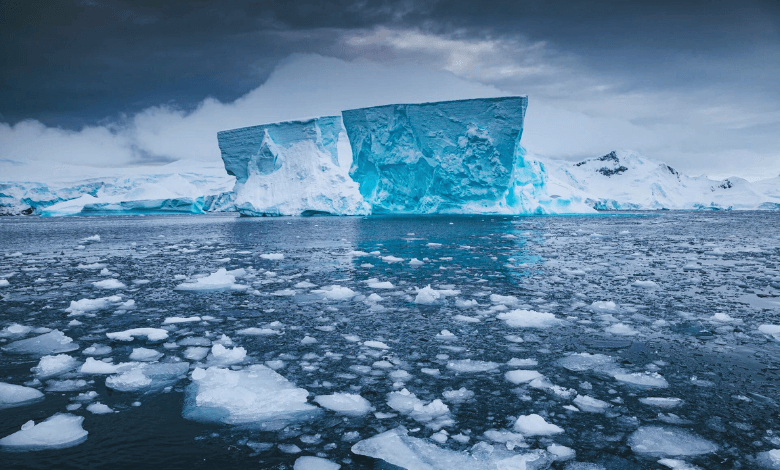New Zealand Raises Alarm About Declining Antarctica Sea Ice

Antarctica is melting prematurely and scientists warn this could affect New Zealand’s weather. This is a result of global warming. Data shows that maximum winter levels in 2023 are at its lowest since satellite monitoring began in the 1970s.
As such, New Zealand scientists and researchers via Antarctic Science Platform are hosting an emergency summit to discuss the situation.
Dr Natalie Robinson, a marine physicist with the National Institute of Water and Atmospheric Research (NIWA) in New Zealand, said Antarctic sea ice and the Southern Ocean are major drivers of global climate.
She said Antarctica’s sea ice decline is a major concern.
Better Understand Antarctica Crisis
A recent study found that Antarctica is warming at twice the rate, between 0.22C and 0.32C per decade compared to 0.18C per decade predicted by climate models. This could potentially push up global sea levels by several meters if it collapsed.
Scientists believe Antarctica is also undergoing polar amplification. Dr Mathieu Casado, lead author of the study, said it’s extremely concerning to see such significant warming in Antarctica, beyond natural variability.
Researchers said part of the warming in Antarctica is likely being masked by a change in a pattern of winds. It is also linked to global heating (loss of ozone over the continent).
Now, New Zealand’s Antarctic Science Platform is holding an emergency summit to get a better understanding of the situation and its potential impacts. Robinson said the summit will enhance dialogue between scientists across disciplines and provide rapid updates for stakeholders and the public.
Southern Ocean Warming Affecting Antarctica
The expert explained that the current low likely represents a shift to a new regime for sea ice. This is somewhat driven by warming of the Southern Ocean.
“Since we anticipate only continued warming of the Southern Ocean, in at least the short-to-medium term, we can similarly expect continued decline in Antarctica sea ice.”
Robinson believes this has to do with the complexity of the climate and its effects on a large system, mainly the Southern Ocean. Overall, it doesn’t look good for Antarctica and its sea ice.
ALSO READ : Climate Crisis Amplifies Extreme Rainfall: New York’s Recent Deluge
The Antarctica sea ice is important for the climate as the ice sheets help draw heat out of the atmosphere into the ocean depths; produce huge amounts of cold, salty waters and this controls how heat and nutrients are distributed throughout Earth’s oceans.
Furthermore, the Antarctic ice sheets deliver carbon dioxide into the deepest ocean basins. The ice also reflects solar radiation back out into space, preventing Earth’s system from absorbing it.



